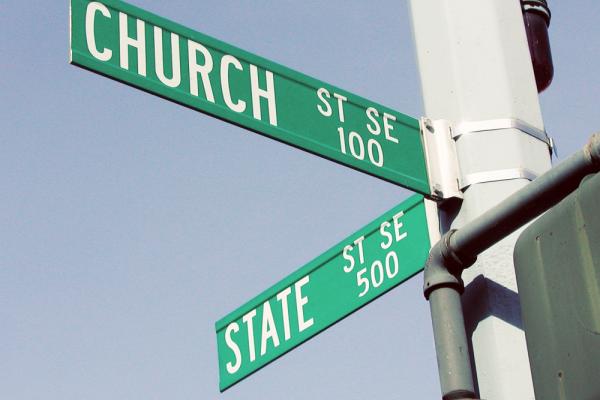WILMINGTON, N.C. — A resolution to allow North Carolina to defy the Constitution and establish a state-sanctioned religion may be dead in the state capitol, but minority faiths say there’s more than enough reason to remain nervous.
Some worry about the implications the bill has for North Carolina, a majority Protestant state with growing Hindu, Muslim, and Buddhist populations.
Manzoor Cheema, a Raleigh resident and board member of the Triangle Interfaith Alliance, said he believes the resolution should be a wake-up call.
“I think this is a very disturbing development; very bad for our state. In my opinion, as a Muslim, a minority community member and immigrant from Pakistan, I believe that separation of church and state is fundamental and grants us many freedoms,” he said.
“But it’s a blessing in disguise to mobilize the interfaith community in North Carolina.”
On April 4, Republican House Speaker Thom Tillis pulled House Joint Resolution 494: The Rowan County Defense of Religion Act 2013, just three days after it was introduced.
The bill declared that the state “does not recognize federal court rulings which prohibit and otherwise regulate the State of North Carolina, its public schools, or any political subdivisions of the State from making laws respecting an establishment of religion.”
GOP lawmakers said they wanted to protect the right of the Rowan County Board of Commissioners to offer sectarian prayers before public meetings, which were facing a legal challenge for running afoul of the separation of church and state.
“I gather what these legislators are saying is they want very much to turn back the clock, but the issue of whether or not states should follow constitutional law is settled,” said Michael J. Gerhardt, a law professor at the University of North Carolina at Chapel Hill and director of the UNC Center on Law and Government.
When word of the bill first surfaced, calls flooded the North Carolina’s ACLU office from several state Jewish federations and synagogues.
“People were horrified by this proposal because it sent a message of exclusion to them, that they don’t matter,” said Chris Brook, legal director of state chapter of the ACLU. “It’s a very unfortunate and confusing message to be sending in 2013.”
One of those callers last week was Eugene Barlaz, the Jewish community relations chair with the Jewish Federation of Raleigh/Cary. The moment he heard about the resolution he started calling Tillis to ask for 30 minutes of his time. And then he called Jewish federations and synagogues across the state.
“A lot of people said to me, ‘Don’t waste your time. This will never go through.’ And my response was people read (Hitler’s) ‘Mein Kampf’ in the 1920s and said nothing would ever happen and look what happened,” Barlaz said.
In an interview with The Salisbury Post, Republican state Rep. Carl Ford, one of the resolution’s sponsors, apologized for any embarrassment the bill had caused, calling its initial draft “poorly written” and misinterpreted.
“We’re not starting a church. We’re not starting a religion,” he told the newspaper. “We’re supporting the county commissioners in their freedom of speech.”
It’s not the first time sectarian prayers have sparked controversy in the state. In 2011, a federal judge ruled against invocations at Forsyth County Board of Commissioners meetings in Winston-Salem. Last February, the Wisconsin-based Freedom from Religion Foundation sent a letter to Tillis asking him to stop explicitly Christian invocations in the state House of Representatives.
The Rowan County lawmakers, however, are getting support. Cornerstone Church recently paid for a billboard along U.S. 29 declaring: “Keep praying commissioners in Jesus name, amen.”
Amanda Greene is the editor of Wilmington Faith & Values. Via RNS.
Photo: Lori Howard / Shutterstock
Got something to say about what you're reading? We value your feedback!
